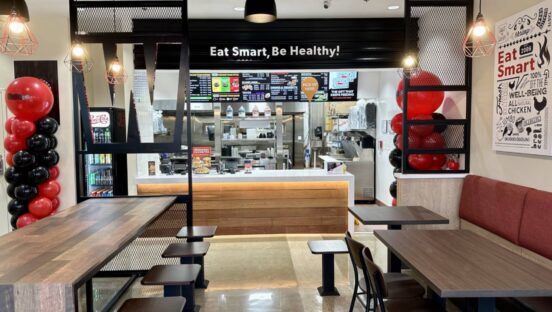Last week, a group of consumer, health, and environmental groups released an antibiotic policy scorecard grading 25 of the largest limited-service brands. The only brands to "pass," according to the report, were Chipotle and Panera with As; Chick-fil-A with a B; and McDonald’s and Dunkin’ Donuts with Cs.
“It’s important to focus on these fast chain restaurants because they are big buyers of meat and poultry, so what these restaurants do will set the tone for what a lot of restaurants can do,” says Kari Hamerschlag, senior program manager for Friends of the Earth, one of the nonprofits involved in the report. “I think that they will lose market share if they don’t make changes in their supply chain.”
The report, “Chain Reaction: How Top Restaurants Rate on Reducing Use of Antibiotics in Their Meat Supply,” is especially timely given the actions of recent brands to clean up their food. In 2015, Panera launched its “No-No List” to remove 150 artificial ingredients; McDonald’s vowed to phase out antibiotics usage in its chicken; Taco Bell and Pizza Hut also went after unnecessary additives; and Chipotle became the first national chain to remove GMOs. These are just a few examples of an overwhelming movement toward cleaner, more natural foods in the limited-service category.
Because this was the inaugural year for the report, Hamerschlag says, the brands were scored on whether they had a good policy in place and whether that information was publically available.
“The reason that that [McDonald’s] got a passing grade, as did Dunkin’ Donuts … is because they both have policies on the books that are good policies,” Hamerschlag says. She adds that while the former has a passing policy on its chicken and the latter for all meats, neither has a concrete deadline for executing those changes. “As companies move to adopt policies, we’ll put more emphasis in the scoring on the implementation. … We want to give companies a lot of credit for adopting good policy, but if they don’t actually implement, then they’re going to see their scores go down over time.” She says that doing surveys like this on an annual basis gives companies something to work toward and show progress.
Although the report singles out the limited-service sector, it might also present an opportunity for the industry to lead others in reducing the use of antibiotics in meat and poultry. In December 2013, the Federal Drug Administration created a voluntary plan to help companies phase out antibiotics; it cited the rise of antibiotic-resistant microbes as a reason to scale back their commonplace application in food production. And while Hamerschlag says lobbyists and legislators have thwarted such changes in the past, change is coming down the pipeline, fueled largely by consumer demands.
“We do think this is going to move the needle,” she says. “There’s just resistance to change across the board until the market says, ‘Listen, we really want this,’ then the producers eventually come around, and they’ll produce what the market wants—more so than meeting regulations.”
By Nicole Duncan





